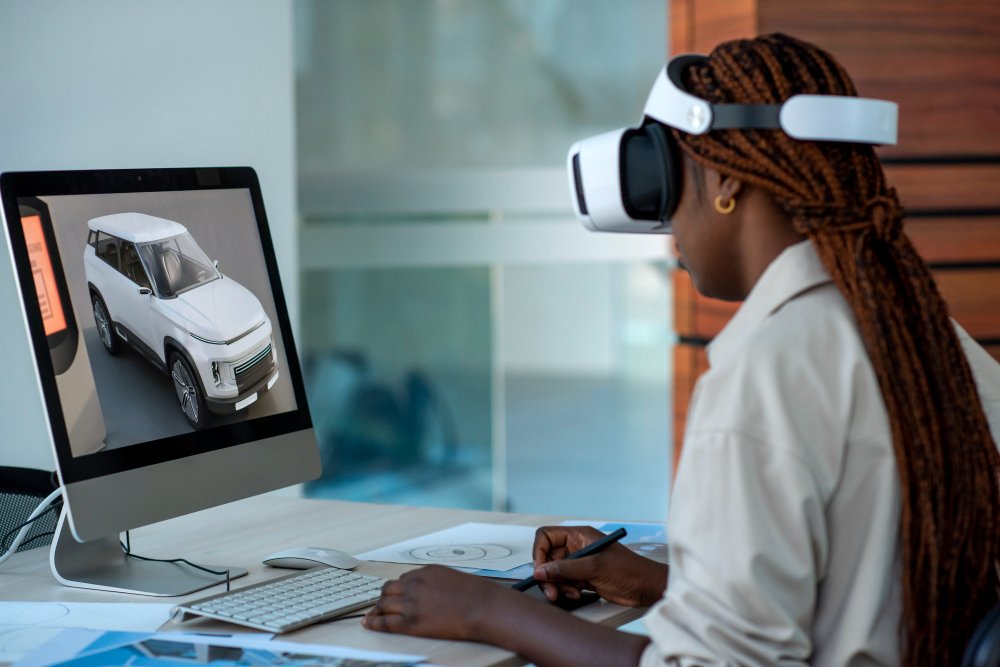In recent years, artificial intelligence (AI) has made groundbreaking strides across various industries, and the world of education is no exception. From personalized learning experiences to automated grading systems, AI is transforming the way we learn, teach, and interact with educational content. As AI continues to merge with education, it’s clear that this synergy has the potential to revolutionize traditional methods, turning classrooms into vibrant centers of innovation. Let’s explore how AI is making magic happen in education!
1. Personalized Learning Like Never Before
One of the most powerful impacts of AI in education is its ability to create personalized learning experiences. Every student learns at a different pace and has unique needs. Traditional classroom settings often struggle to address these individual differences. However, AI-driven platforms can analyze student performance, strengths, and weaknesses in real-time. This allows educators to tailor lessons, resources, and challenges to each student’s specific needs.
Imagine an AI tutor that adapts to a student’s learning style—offering extra help in areas where they’re struggling and presenting advanced material when they’re ready to move forward. With AI, learning is no longer a one-size-fits-all approach but a deeply personalized journey.
2. Smarter Assessment and Feedback
Grading can be a tedious task, but with AI, educators can automate this process, ensuring accuracy and consistency. Beyond simply grading tests, AI-powered systems can provide insightful feedback on student assignments, highlighting areas of improvement and offering suggestions for further learning.
This immediate feedback loop allows students to correct mistakes faster, deepening their understanding of concepts. Additionally, AI systems can track a student’s progress over time, offering teachers a clear view of their development and providing actionable insights on how to help them succeed.
3. Virtual Classrooms and AI Tutors
With the rise of virtual classrooms, AI is stepping in to create more interactive and engaging learning environments. AI-powered chatbots and virtual assistants are helping to bridge the gap between students and teachers, answering questions, providing resources, and even offering emotional support in some cases. These AI tools are available 24/7, ensuring students can get help anytime, anywhere.
AI tutors, for example, are already helping students prepare for standardized tests by providing customized practice tests and study plans. These AI systems use algorithms to analyze previous test performance and predict which topics a student needs to focus on, optimizing their study time for maximum success.
4. Breaking Down Barriers with Accessibility
AI is also playing a crucial role in making education more inclusive and accessible. From speech-to-text technologies for students with hearing impairments to AI-driven translation tools for non-native speakers, AI is breaking down barriers that once made education inaccessible for many.
By leveraging AI, schools and universities can offer more diverse learning options for students with different needs, whether it’s adjusting the pace of lessons, providing visual aids, or translating content into multiple languages. This ensures that no one is left behind in the learning process.
5. Data-Driven Insights for Educators
AI doesn’t just help students; it empowers educators, too. By analyzing vast amounts of data, AI systems can uncover patterns and trends in student performance. This allows teachers to better understand which teaching methods are working and which need improvement. Additionally, AI can predict which students are at risk of falling behind, giving educators the opportunity to intervene early.
This data-driven approach makes it easier for educators to create a learning environment that is adaptive and responsive to student needs, resulting in a more dynamic and effective teaching strategy.
6. The Future of Education is AI-Powered
The integration of AI into education is just beginning, and the possibilities are limitless. From AI-generated textbooks to virtual reality classrooms, the future of learning is set to be more engaging, efficient, and personalized than ever before. While AI will never replace the human touch of educators, it will enhance their ability to teach and guide students in ways that were once unimaginable.
Conclusion: The Magic is Just Beginning
As AI continues to evolve, its role in education will only expand. The magic that happens when AI meets education is undeniable—creating a future where learning is more accessible, personalized, and impactful. Educators, students, and institutions alike stand to benefit from this transformation.
AI may be a tool, but it’s one that holds the power to unlock a world of possibilities in education. The next chapter in learning has just begun, and it’s going to be revolutionary!

